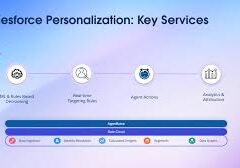Healthcare leaders see significant potential in data analytics and AI technology to transform the industry over the next five years, according to a new market research report from Arcadia and The Harris Poll. AI and the Role of Healthcare CIOs
The report, titled “The Healthcare CIO’s Role in the Age of AI,” examines AI’s impact on the healthcare sector and how decision-makers are preparing to leverage the technology. Notably, 96% of healthcare leaders surveyed believe that adopting AI effectively will provide a competitive edge both now and in the future. While only a third see AI as essential today, 73% expect it to become critical within five years.
How Health Systems Are Using AI
Around 63% of respondents revealed that their organizations use AI to analyze large patient data sets to identify trends and guide population health management efforts. Another 58% are using AI to analyze individual patient data to identify opportunities for improving health outcomes. Close to half of the leaders indicated that AI is being used to optimize electronic health records (EHR) management and analysis.
These trends align with the findings of the recent “Top of Mind for Top Health Systems” survey, conducted by the University of Pittsburgh Medical Center’s Center for Connected Medicine (CCM) in collaboration with KLAS, which identified AI as the most exciting emerging technology in healthcare with transformative potential for both administration and care delivery.
The excitement surrounding healthcare AI largely stems from its ability to break down data silos and tap into the wealth of clinical data that healthcare organizations already collect.
“Healthcare leaders are thoughtfully preparing to harness the full value of AI in care delivery reform,” said Aneesh Chopra, Arcadia’s chief strategy officer. “As safe, secure data sharing scales, technology leaders prioritize data platforms that organize fragmented patient records into clinically relevant insights at every stage of the patient journey.” A quest for a 360 degree patient view abounds.
Using AI to Support Strategic Priorities
The Arcadia survey emphasized the importance of using analytics to improve patient care, with 83% of leaders believing that harnessing data will help healthcare organizations remain competitive and resilient while overcoming digital transformation and financial challenges.
Eighty-four percent of respondents cited technology as a current priority, with 44% focusing on an enterprise-wide approach to data analytics, 41% prioritizing AI-driven decision-making, and 32% working to simplify technical ecosystems.
These efforts are viewed as crucial to advancing other strategic goals, with 40% of leaders prioritizing the patient experience, 35% aiming to improve outcomes, and 29% focusing on patient engagement.
Although healthcare leaders view AI adoption positively for strategic advancements, hurdles remain. While 96% of respondents are confident in adopting AI, many feel pressured to move quickly. When asked about the sources of this pressure, 82% cited data and analytics teams, 78% pointed to IT and tech teams, and 73% mentioned executives.
However, successfully implementing AI requires talent and resources that some organizations lack. About 40% of leaders identified a lack of talent as a significant barrier to AI adoption, signaling the need for IT and analytics teams to acquire new skill sets.
Seventy-one percent of IT leaders reported a growing demand for data-driven decision-making skills, while two-thirds pointed to a rising need for expertise in data analysis, machine learning, and systems integration. Additionally, nearly 60% mentioned the need for roles that focus on training and support for healthcare staff.
The Evolving Role of CIOs
CIOs and other healthcare leaders are seeing their roles evolve as AI and data become more integrated into healthcare operations. Eighty-seven percent of respondents see themselves as strategy influencers, actively involved in setting and executing AI strategies, while only 13% view themselves as purely focused on implementation.
Despite these evolving roles, many CIOs feel constrained by daily operations. Fifty-eight percent reported being primarily focused on tactical execution rather than developing long-term AI strategies, although they believe they should spend 75% of their time on strategic planning to be most effective.
Part of these strategies will likely focus on improving communication and workforce readiness. Three out of four leaders cited a lack of effective communication between IT teams and clinical staff as a barrier to leveraging new technologies, and two out of five noted that clinical staff are not fully equipped to make the best use of data analytics.
“CIOs and their teams are setting the stage for an AI-powered revolution in patient care and healthcare operations,” said Michael Meucci, Arcadia’s president and CEO. “Our findings highlight a strong consensus that a solid data foundation is necessary to realize the future of AI in healthcare. At the same time, the human workforce, with evolving talent and skills, will shape the real-world impact of AI in healthcare.“
Content updated August 2024.













